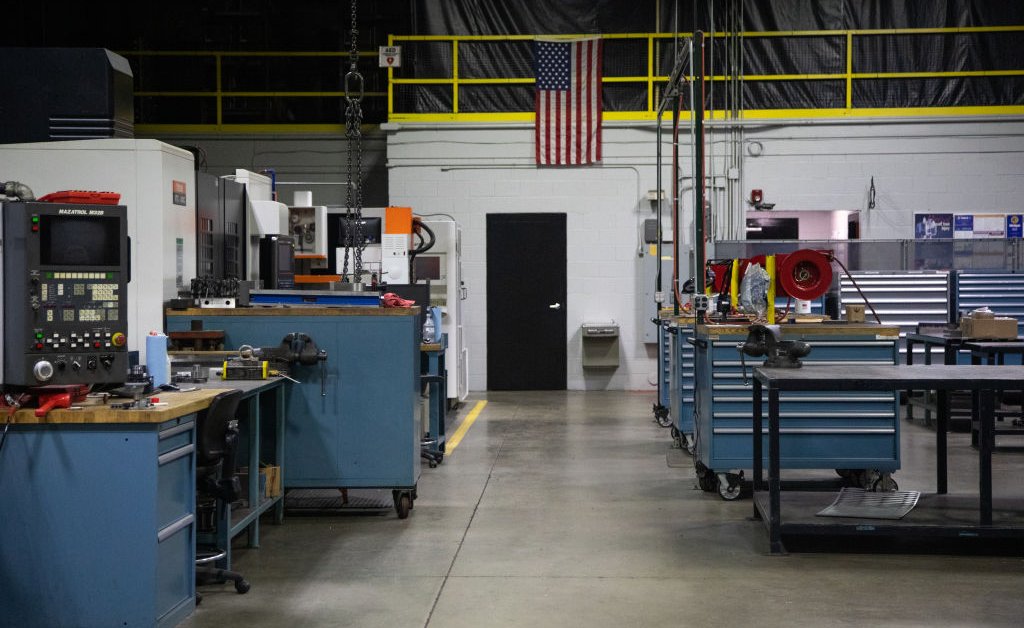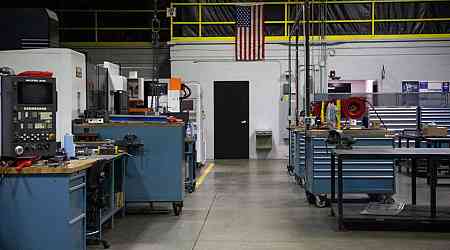
(To get this story in your inbox, subscribe to the TIME CO2 Leadership Report newsletter here.)
In recent months, major automakers have announced plan after plan to slow their transition to electric vehicles. Last week, Volvo said it wouldn’t move as quickly as planned to an all-EV lineup. And, over the summer, both GM and Ford said they would delay the introduction of previously announced models.
[time-brightcove not-tgx=”true”]These steps often come at steep cost for the companies as they adjust multi-billion dollar spending plans and, in some cases, write down their losses. But, as significant as the costs are for the big automakers, the stop-and-go transition away from gas-powered cars happening across the industry weighs even greater on the thousands of companies that directly or indirectly supply automakers.
These companies, which typically operate with less access to capital than major car manufacturers, can struggle to change their business overnight and are left to interpret a constantly evolving set of tea leaves about the speed of the transition. The biggest concern about electric vehicles for suppliers is that automakers won’t sell as many electric cars as planned, according to a March survey from MEMA, the industry’s trade group.
Auto suppliers typically receive less attention in the press and from political leaders than the companies that sell the final product that ends up in our driveways, but they are critically important. In recent years, auto suppliers have employed nearly 900,000 people in the U.S., representing a key piece of local economies across much of the midwest and an important political constituency to ensure the durability of the transition. And their story is a harbinger for companies outside the auto sector, too. The push to address climate change will affect businesses in every sector, and many may soon themselves similarly assessing how fast to move.
Perhaps nowhere is this conversation more relevant than in Michigan, where 60 of the top 100 North American auto suppliers are headquartered. On a trip to the state earlier this year, I joined a conversation between suppliers convened by state and local officials. Sitting at a conference table overlooking downtown Detroit, the executives shared experiences, frustrations, and tips about their efforts to navigate a rapidly evolving transition. No one doubted that it was happening, but the executives also noted how difficult it remains to plan when you don’t know how fast it is moving.
Read more about the political ripples of the EV transition in Michigan here
Andrew Clemence, who heads the “green business” group at auto supplier DENSO, described the challenge of deciding how much capacity to keep in producing radiators for gas-powered cars and how much to lean into heat pumps, which rely on electricity. “It’s a little bit of a dilemma,” he said. “How quickly do we move to transition to the future product, that we know is going to have a longer runway, while still supporting our customers’ needs?” he asked.
The signals automakers need to interpret are many. Automakers keep changing their minds about how fast they expect to transition to EVs, revising timelines forward and backward. Last year, the Biden Administration proposed a stringent vehicle pollution rule that would have driven up to two-thirds of vehicles to be electric by 2032. This year, the administration softened it. And consumers have given mixed signals, too. There’s no question that demand for electric vehicles is growing, but enthusiasm seems to have dampened.
Transitions are complicated and there is no easy answer for businesses. But companies that figure out how to adapt to the gyrations of the transition will thrive—while those that can’t adapt will struggle or fail. In the conversation in Detroit, “flexibility” emerged as a key word. Businesses benefit when they find ways to pivot and prepare new products and new markets while not abandoning their core offerings too soon.
“About a year ago, if you weren’t in EVs, you were missing the boat,” said Tim DeBastos, head of North America battery development at LG Energy Solutions. “Fast forward to today, and it’s a bit of a struggle. We have had to remain flexible.” DeBastos described, for example, exploring government incentives that allow the company to adjust to changing circumstances.
Others touted their diversification into manufacturing products for other industries entirely. Indeed, an all-electric world almost necessarily means less business for suppliers. A report from consulting firm PwC found that much less of EVs’ value, 35% to 40%, would come from components from suppliers. More than half of the value of internal combustion engine vehicles comes from supplier components.
The executives I met all worked at fairly sophisticated firms, even as they expressed frustrations interpreting market signals. And yet they are, in some ways, the lucky ones. Many others—particularly smaller suppliers—may not have the time or wherewithal to track the pace of the transition.
In Michigan, state and local officials are trying to help fill the gap. At the head of the table, Jonathan Smith described the state-funded office he is setting up to address these transition-related issues. Known as the Community & Worker Economic Transition Office, the office will form “SWAT” teams to help communities with plant closures and work with suppliers to help them diversify their products. “This could be a really powerful way for us to get out ahead of some of the economic change that’s coming,” Smith said.
As I wrote last month, efforts like this help make the transition away from fossil fuels politically sustainable. Former President Trump has held campaign events at Michigan auto suppliers—a clear signal of the political saliency of the challenges.
But the lessons here aren’t just for policymakers. Businesses in all sectors would be wise to figure out how to prepare on their own, too.
TIME receives support for climate coverage from the Outrider Foundation. TIME is solely responsible for all content.
































